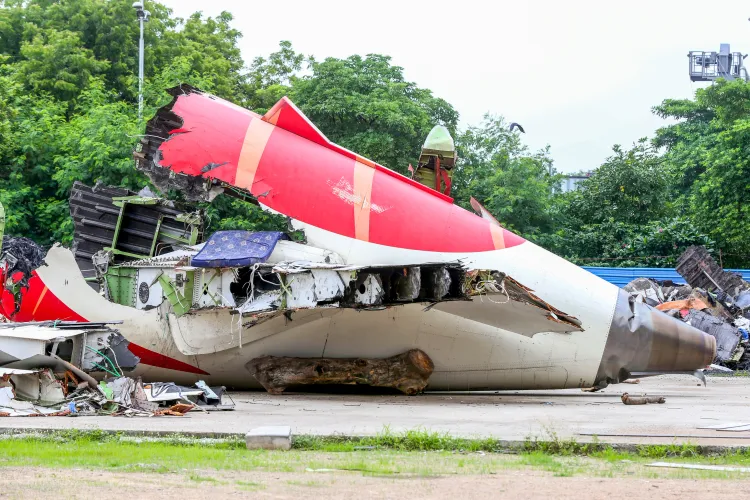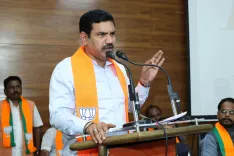Is the Media's Reporting on the Air India Crash Premature and Speculative?

Synopsis
Key Takeaways
- NTSB has labeled media reports on the crash as premature.
- The investigation is led by the AAIB.
- Media coverage must avoid selective reporting.
- Collaboration among multiple agencies is essential.
- Public patience is needed while the investigation continues.
New Delhi, July 19 (NationPress) The Chief of the US National Transportation Safety Board (NTSB) has characterized recent media coverage regarding the Air India crash in Ahmedabad as “premature and speculative”. She has called on both the media and the public to exercise patience and await the final findings from the Aircraft Accident Investigation Bureau (AAIB), which is spearheading the investigation into this tragic event.
In a statement shared on the X social media platform, NTSB Chairwoman Jennifer Homendy expressed concern over the rashness of the recent reports regarding the Air India 171 crash.
“The AAIB has just published its preliminary findings. Investigations of this scale require time and thoroughness. We wholeheartedly endorse the AAIB’s public statement released on Thursday and will continue to support their ongoing inquiry,” stated Homendy, emphasizing that all inquiries should be directed to the AAIB.
The NTSB is the federal agency responsible for probing aviation and significant transportation incidents.
Previously, certain media outlets have propagated unverified and misleading information about the Air India Ahmedabad crash, prompting the AAIB to issue a warning against “selective and unverified reporting”, labeling such practices as “irresponsible and potentially harmful to the integrity of the investigation”.
The Wall Street Journal (WSJ) reported that a cockpit recording from the ill-fated flight allegedly suggests that the captain may have interrupted the fuel supply to the aircraft's engines.
“We have observed that some segments of the international media are persistently trying to reach conclusions based on selective and unverified reporting,” said the AAIB in their statement. “Such actions are irresponsible, particularly while the investigation is still underway. We urge the media and the public to avoid disseminating premature narratives that could compromise the integrity of the investigative process,” added the agency.
Aviation experts assert that the NTSB, FAA, EASA, and the AAIB must conduct a thorough investigation to determine why the 'Fuel Switch to Cut Off' occurred.
This investigation is expected to be complex, involving the NTSB, AAIB, Boeing, EASA, the Indian DGCA, and the UKCAA, and it is critical that no aspect is overlooked in this inquiry.






